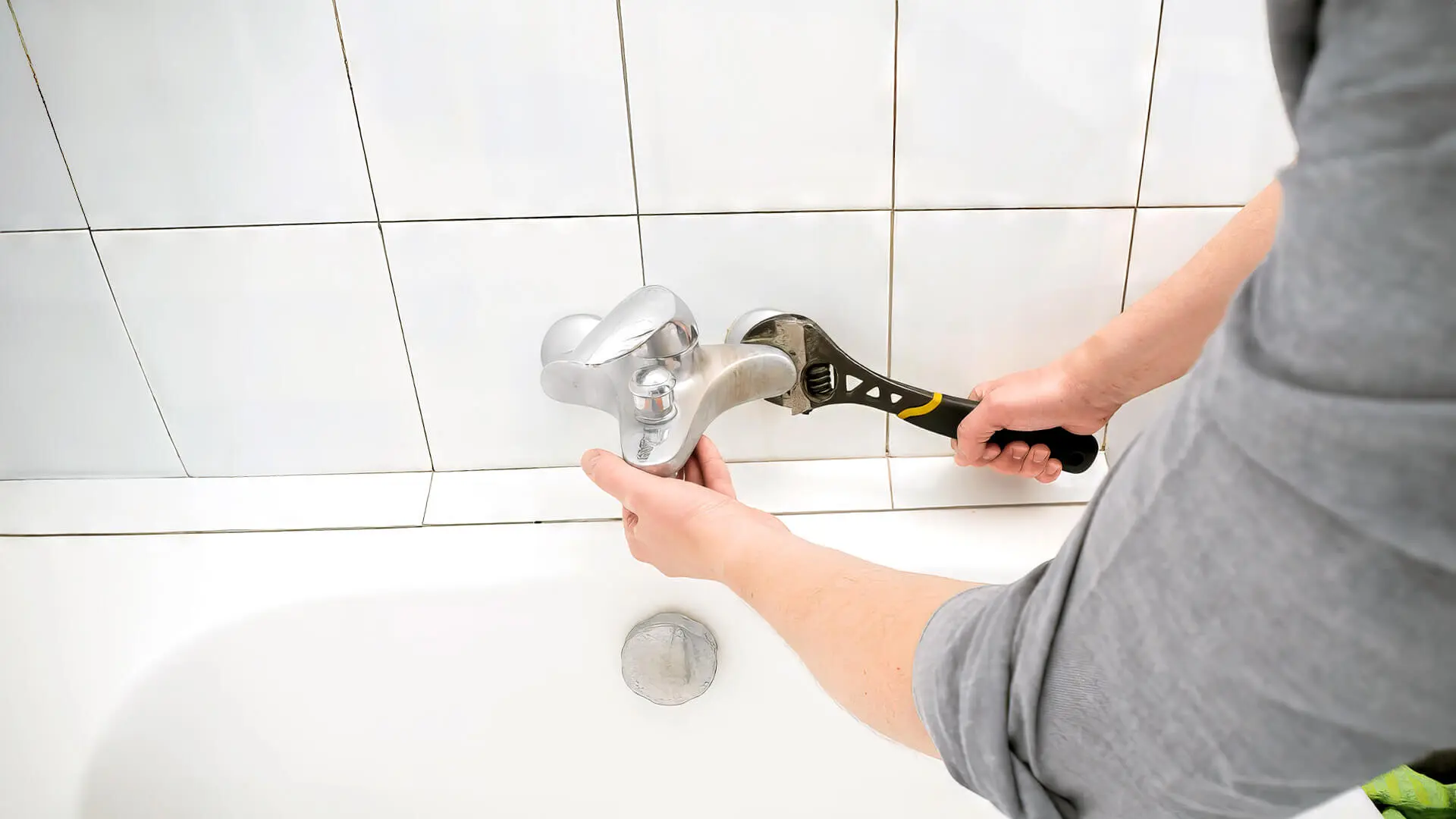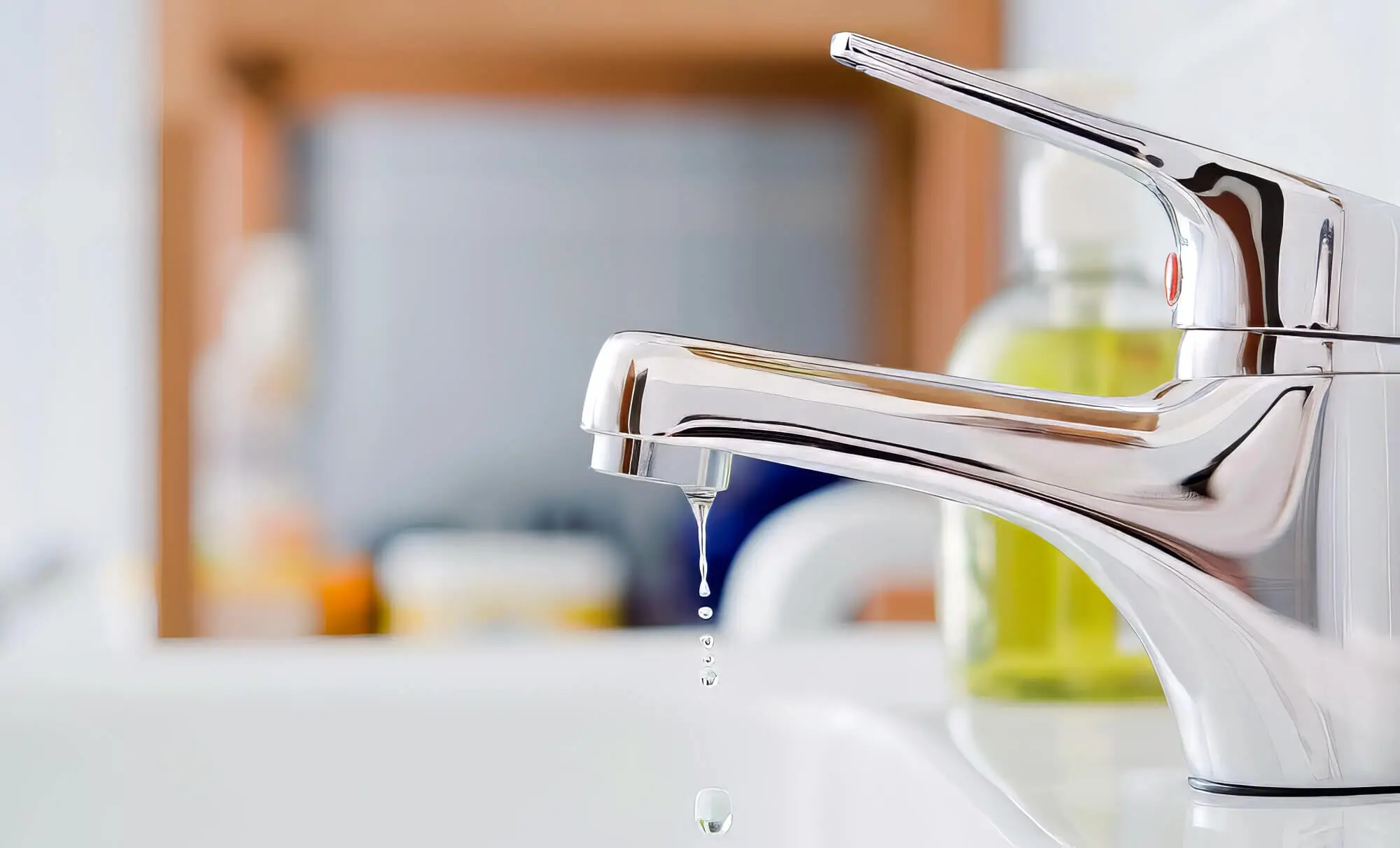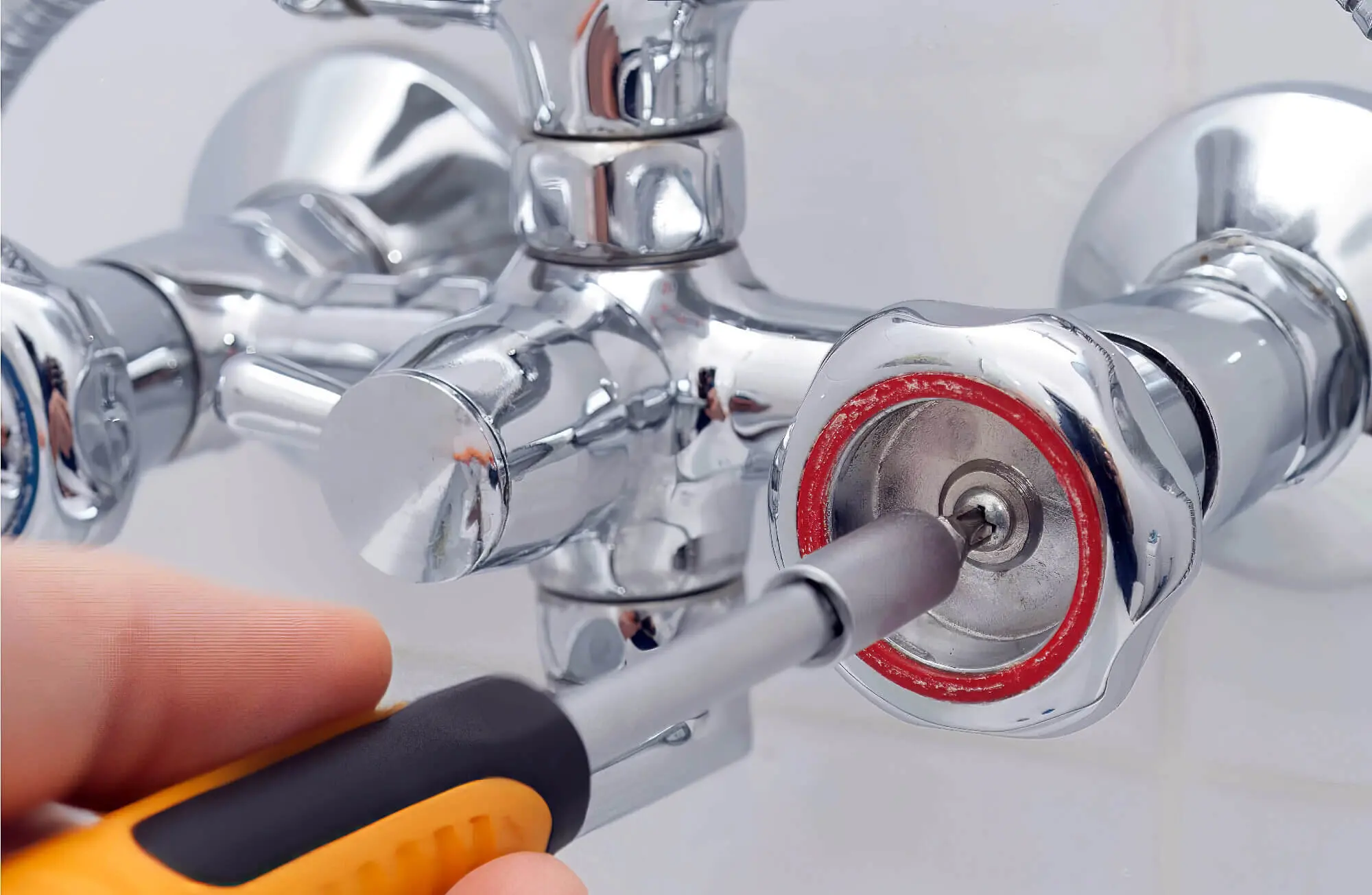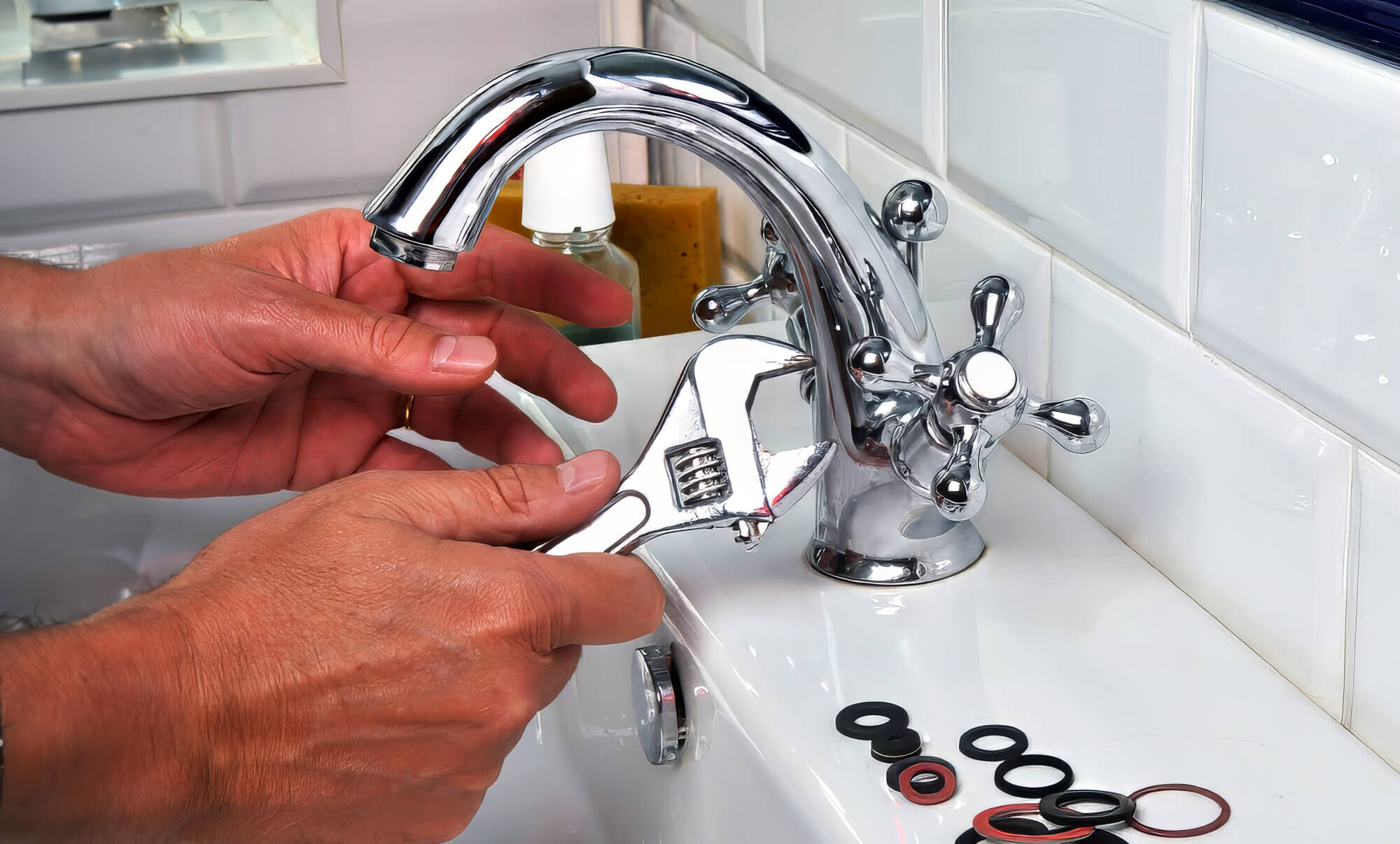A leaking tap is a frequently annoying issue at home. The constant drip might seem small at first, but if left unchecked, it can turn into a bigger headache, wasting water, upping your water bill, and damaging your fixtures and surroundings.

As homeowners, we frequently wonder: should we handle the leak ourselves or call in a professional plumber? Finding the right balance between DIY enthusiasm and seeking professional help is key.
In this blog, we will explore the factors influencing this decision-making process, helping you determine when to embark on a DIY plumbing adventure and call in the experts to address the issue swiftly.
Whether you’re a seasoned DIYer or completely new to handling tools, keep reading to find useful tips that’ll help you make the right choice for your leaking taps troubles.
When to Fix a Leaking Tap: DIY or Professional Help?
Leaking taps can be puzzling, leading you to wonder whether to fix it yourself or get professional help. The choice depends on various aspects, including your hot water service, which can affect the result.
DIY Approach
Level of Expertise: If you possess basic plumbing knowledge and are comfortable using tools, fixing a leaking tap might be well within your capabilities. Tasks such as replacing the washer or O-rings are relatively straightforward and can be tackled with the right tools and guidance.
Simple Water Leaks: A slow, consistent drip from your hot water tap is often caused by a worn-out washer or a loose component. These issues are typically easy to identify and fix, making them suitable for a DIY approach.
Cost-Effective: Taking the DIY route can save you money, as you won’t need to pay for professional services. However, remember to factor in the cost of tools, a repair trip to the hardware store, and materials required.
Professional Help
Complex Leaks: If the leak is more intricate, such as issues within the faucet’s internal mechanisms or hidden plumbing, it’s wise to consult a professional. Attempting complex repairs without the requisite knowledge can worsen the problem.
Time and Convenience: Not everyone has the luxury of time to devote to repairs. Professionals can often diagnose and fix the issue swiftly, saving you the hassle of troubleshooting and potentially avoiding further water wastage.
Preventive Maintenance: Professionals can identify underlying plumbing problems that might contribute to the leak, helping you prevent future issues and saving you money in the long run.
Warranty Concerns: Attempting repairs could void the warranty if your leaking taps are under warranty. To maintain coverage, it’s best to let professionals handle the situation.
Identifying the Severity of the Leaking Tap
When faced with a leaking tap, the first step in deciding whether to fix it yourself or seek professional help is to assess the severity of the leak. Not all leaks are created equal, and understanding the extent of the problem can guide your course of action.
Drip Rate
Pay attention to the rate of dripping. A slow, occasional drip might be a minor issue, possibly caused by a loose component. However, a rapid and consistent stream of water suggests a more severe problem that requires immediate attention.
Persistent Moisture
Check the area around the leaky tap body. If you notice persistent moisture, water pooling, or water damage on surfaces, the leak could be more severe than it appears. These signs might indicate water seeping into hidden spaces, potentially causing structural damage over time.
Faucet Type
The type of taps can influence the severity of the leak. Traditional compression faucets are more prone to leaks and might require more frequent repairs. Modern ceramic disc or cartridge faucets tend to be more durable, but leaks in these faucets can also vary in severity.

Water Pressure
A sudden increase in water pressure in your hot water system could lead to a more pronounced leak. If you notice a change in water pressure along with the leak, it’s a sign that the issue might be escalating.
Internal vs. External Leaks
Determine whether the leak is coming from the tap’s visible components or originating deeper within the plumbing system. Internal leaks within the faucet’s mechanisms or the pipes require professional attention, as these can be complex to diagnose and fix.
DIY vs. Professional Help
A DIY approach might suffice for minor leaks with slow drip rates and minimal moisture accumulation. However, if the leak is substantial and causing damage or if you are unsure about the underlying issue, it’s advisable to call a professional plumber.
Fixing a severe leak without the necessary expertise could worsen the problem.
DIY Methods to Fix a Leaking Tap
Dealing with a leaking tap doesn’t always necessitate a call to a professional plumber. In many cases, you can tackle the issue yourself with a few essential tools and a bit of know-how. Here are some DIY methods to consider when attempting to fix a leaking tap:
1. Replacing Washers and O-rings
One of the most common causes of a leaky tap is a worn-out washer and jumping valve or O-ring. These small rubber components can deteriorate over time, leading to leaks around the tap handle. Turn off the water supply, remove the handle, disassemble the dripping taps, and replace the worn rubber washer and jumper valve or O-ring with a new one.
2. Tightening Loose Components
A loose handle, spout, or other parts of the tap body can also cause leaks. Use a shifting wrench or needle-nose pliers to tighten any loose components gently. Be cautious not to overtighten, as this could lead to further damage.
3. Cleaning Sediment Buildup
Mineral deposits and sediment can accumulate within the tap’s components, affecting its functionality and causing leaks. Disassemble the leaky taps, including the tap bonnet, and soak the components in a vinegar solution to dissolve the build-up. Rinse thoroughly before putting the tap back together.

4. Adjusting the Valve Seat
A worn or corroded valve seating can lead to leaks around the spout. You may need a valve seat wrench to remove and replace the valve seat if necessary. Make sure to clean the area thoroughly before reassembling.
5. Applying Plumbing Tape
For leaks around threaded connections, such as the spout or handles, applying plumbing tape (Teflon tape) to the threads can help create a watertight seal. Wrap the tape clockwise around the threads before reassembling the components.
6. Inspecting and Replacing Cartridges
If you have a cartridge-style faucet, inspect the cartridge for signs of damage or wear. If needed, replace the cartridge with a new one. Follow manufacturer instructions for proper installation.
7. Turn Off Water Supply
Before you begin any DIY repairs, turn the water off at the supply point to the tap. This prevents water flow while you work and avoids potential accidents.
8. Know Your Limits
Whether the tap is hot or cold, many dripping tap issues can be resolved through DIY methods; it’s essential to recognise when a problem requires professional expertise. If the leak is severe, you’re unsure about the cause, or the DIY fixes haven’t worked, it’s time to call local plumbing services.
Remember that safety comes first. If you’re uncomfortable or unsure about any step of the DIY repair process, it’s best to seek professional help. With the right approach and patience, you can often successfully fix a leaking tap and save water and money.
When to Hire a Professional Plumber
While DIY methods can address minor dripping tap issues, there are certain situations where the expertise of a professional plumber is crucial.
If you’re dealing with a persistent and rapid leak, significant water damage, or a sudden change in water pressure, it’s advisable to seek professional help.
Complex leaks stemming from internal faucet mechanisms or concealed plumbing can be challenging to diagnose and repair without the proper knowledge and tools. Additionally, if you’re uncertain about the cause of the leak or have attempted DIY fixes that haven’t resolved the problem, it’s time to bring in a plumber.
Remember, a professional plumber not only possesses the skills to fix the issue but can also provide preventive maintenance to avoid future problems and ensure the longevity of your plumbing system.

Risks of Fixing a Tap Yourself
The appeal of saving money by doing plumbing work yourself is understandable, but be aware of the risks involved in fixing a tap on your own.
If you lack plumbing experience, DIY repairs on a tap might worsen the issue, leading to more damage and potentially higher repair costs down the track.
Additionally, improperly disassembling the leaking tap or using incorrect tools could damage its components or cause leaks to become more severe. If your leaking tap or plumbing fixtures are still under coverage, warranties may be void.
In cases where the leak is due to underlying plumbing issues rather than a simple component replacement, a DIY approach might only provide temporary relief, masking more complex problems that could eventually lead to water damage and higher expenses.
When in doubt, it’s often safer to seek the expertise of a professional plumber to ensure the job is up to standard and to prevent further complications.
DIY Solutions and Expert Insight for the Right Fix
Dealing with leaking taps involves balancing your DIY spirit with the wisdom to know when to call in the professionals.
As explored in this blog, homeowners with basic plumbing knowledge can often successfully tackle simple fixes like replacing the washer and jumper valves or tightening loose components.
However, when faced with complex leaks, internal faucet issues, or persistent water damage, enlisting the expertise of a professional plumber becomes essential. Attracting intricate repairs without the necessary knowledge can lead to costly consequences.
If you need a skilled plumbing team, look no further than Big Blue Plumbing. Our experts are equipped to diagnose, repair, and maintain your plumbing systems precisely and carefully.
Don’t hesitate to contact us for all your plumbing needs. Whether it’s a minor drip or a more challenging issue, we’re here to provide efficient solutions that ensure the integrity of your plumbing and the comfort of your home.



